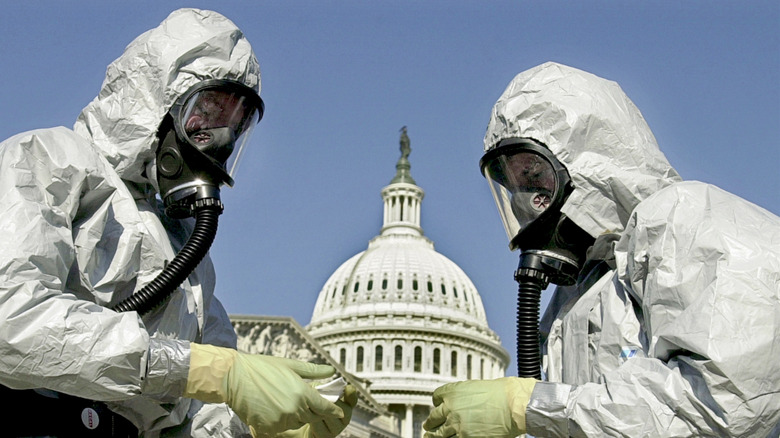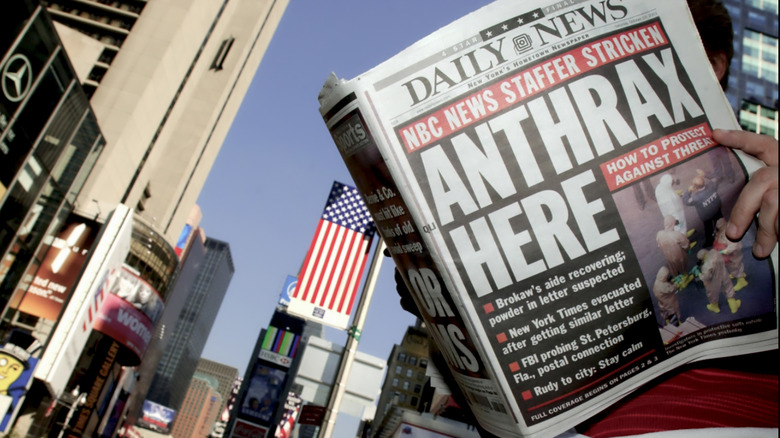The Anthrax Attacks Review: The Post-9/11 Amerithrax Story Gets The Netflix Doc Treatment
After the September 11, 2001 attacks, the United States was, understandably, on edge. The sudden, terrible scenes of destruction and death rocked the country and made us all realize that no matter what we want to tell ourselves, we are not safe. Of course, that was always true — life is random and often quite cruel. But the attacks opened our eyes in ways we didn't expect, and had us looking over our shoulders for more terrorist boogeymen.
And almost immediately after 9/11, starting on September 18, 2001, a new catalyst for fear arrived. Someone, somewhere, began mailing letters containing anthrax. Targets included several news organizations as well as Senators Tom Daschle and Patrick Leahy. Ultimately, five people died and 17 others were infected. With this all starting just a week after the 9/11 attacks, it was a good bet that they were related — that the people who planned 9/11 had moved on to a new form of terrorism.
But that wasn't the case. As it turned out, the terror event — dubbed Amerithrax — was homegrown. First, bioweapons expert Steven Hatfill became a suspect. After he was cleared, biodefense lab scientist Bruce Edwards Ivins became the prime suspect. Ivins was never charged, however, as he died by suicide in 2008. However, the government considered him the "sole culprit" in the end. "The Anthrax Attacks," a new BBC-produced Netflix documentary from Dan Krauss ("The Kill Team") covers these events — but takes an odd approach that doesn't much help the narrative.
Something missing
While the bulk of "The Anthrax Attacks" makes use of contemporaneous news footage and the standard talking-head interviews that have become so ubiquitous with the genre, Krauss also decides to stage some elaborate, cinematic re-enactments featuring Clark Gregg as Bruce Ivins. And Gregg is perfectly fine in the role, bringing just the right amount of suspicion to the part. But this device is distracting and altogether needless.
Worse, the doc never really goes into Ivins' psychology. If he did it, why did he do it? I understand that there are no easy answers — Ivins never confessed, therefore we don't really know his motivations. But some sort of insight into who he was and what drove him would've been helpful. Instead, he remains a mystery. Again: that's part of the point. Questions about this will remain unanswered.
But "The Anthrax Attacks" can't shake the feeling that it's missing something. Despite this issue, the doc does a solid job of capturing the general mood and terror that accompanied the attacks, and the loss of life left in the wake. I just wish the film had nixed the celebrity guest star angle and had enough confidence to tell the story on its own.
"The Anthrax Attacks" premieres September 8, 2022 on Netflix.

